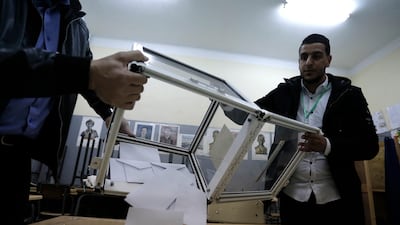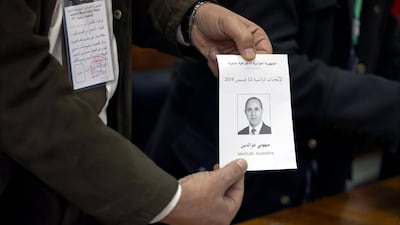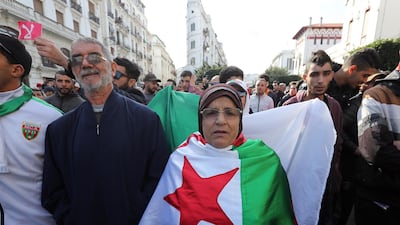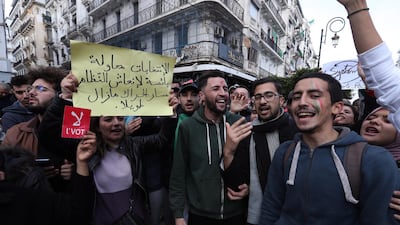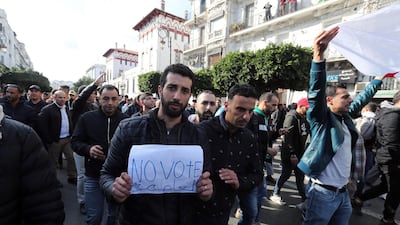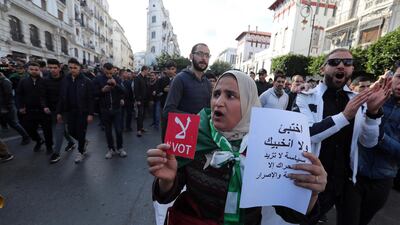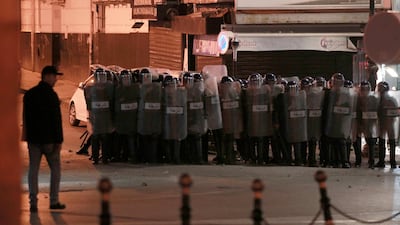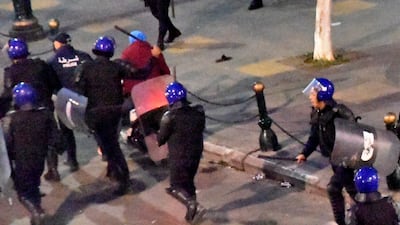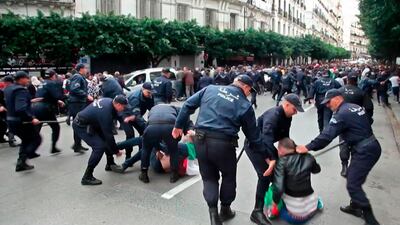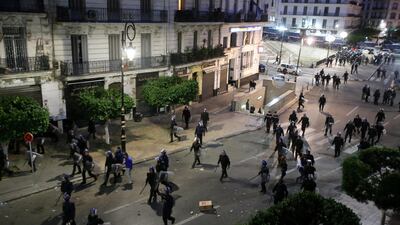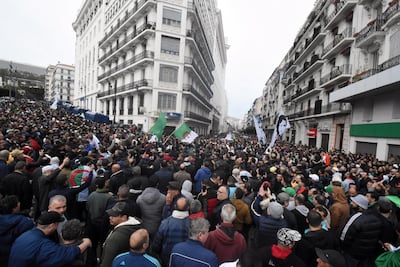Algeria's newly elected president Abdelmadjid Tebboune has vowed to reach out to pro-democracy protesters to create a "new Algeria".
The former prime minister Abdelmadjid Tebboune won Algeria's presidential election with 58.15 per cent of the vote, according to preliminary results declared on Friday, amid another day of large protests.
Thursday's vote was fiercely opposed by Hirak, a nine-month-old protest movement, calling for a complete overhaul of the political system. The low turnout of about 40 per cent was in part because protesters called for a boycott of what they said was a sham vote.
Speaking on Saturday, Mr Tebboune said he was ready to meet with protest leaders to “listen to them (and) take care of their concerns.”
He said he will make it a priority to revise the constitution to establish a “new Algeria” that corresponds to the aspirations of the movement, a project that would be put to a referendum.
On the streets of Algiers, protesters came out in force following the announcement to continue their mostly peaceful campaign for a complete reform of the political system. Some smeared their faces with white powder, in reference to the Mr Tebboune’s son, who was arrested in May last year in connection to large shipment of cocaine discovered in the port of Oran.
Demonstrators said that for them, the winner made no difference as all of the candidates represent the same regime as ousted president Abdelaziz Bouteflika.
"I'm not happy about the results, but I am happy that people are still protesting and still out here fighting. We're still out saying no, we don't want this system and these elections will not give us the change we want," protester Amina, 28, told The National.
The decisive win by 74-year-old Mr Tebboune followed earlier reports that no candidate appeared likely to get a majority, leading to expectations of a run-off vote between the two front runners.
The runner up was Abdelkader Bengrina, a former minister, who received 17.38 per cent of the vote, elections officials announced on television.
Opponents of the election had gathered at some polling stations and in the rebellious Amazigh – or Berber – region to the east of the capital, on Thursday. A video purported to show ballot boxes being seized and votes scattered on the ground.

Hirak supporters refer to the candidates as “the gang” and their grip on power as “le pouvoir”, seeing them as a civilian facade for military rule.
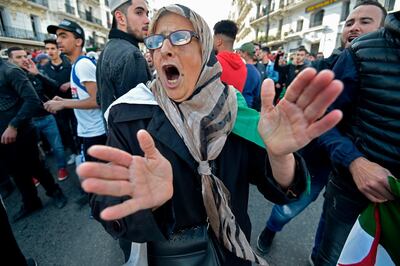
“We need to treat these numbers cautiously. The fact that there was a turnout of more than 40 per cent [despite the boycott], the fact that Tebboune was elected with more than 50 per cent of the vote. There was nothing transparent of fair about these elections,” said Dalia Ghanem, a research scholar at the Carnegie Middle East Centre.
“We’ve seen ballot boxes come to polling centres full of ballots, we’ve seen many, many things that showed that the regime staged the election. But one thing remains sure, Tebboune is going to be seen as an illegitimate president.”
The government has been accused of tampering with results in previous elections and there are no international election monitors.
The conviction of two former prime ministers on corruption charges earlier this week was seen as an attempt to show the public that the government was willing and able to reform. De facto ruler Lt Gen Ahmed Gaid Salah, who triggered the legislature move to force the 82-year-old Mr Bouteflika to step down due to ill health, pushed for the vote as the only way to end the crisis, but protests have stepped up in recent days.
In his maiden speech as prime minister once again, Mr Tebboune vowed to fight the “corruption which has infected the Algerian state” and to clean up politics, saying he wants to put a definitive end to links with dirty money.
He promised to include “young men and young women” in his new government.
The arrest of protest leader Kaddour Chouicha on Tuesday shows the regime is nervous about the protests. He was sentenced to one year in prison on the same day on the grounds of threatening public security and insulting a public institution.
A number of artists, journalists and activists have also been arrested in a crackdown on dissenting voices.
The new president will be caught between the military that brought him to power and an unhappy population demanding change.
